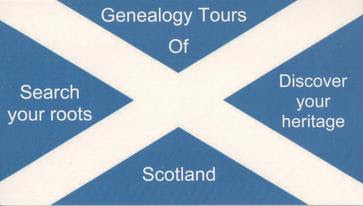Everyone seems to be jumping on the Ancestral Tour train
these days. For the most part, I think that’s great. The more countries we can provide
access to to connect people to their ancestral homeland the better. There is no
greater, more profound experience. And when genealogists can help make that
connection, it is a humbling and rewarding experience that defies description.
But like anything else, some people are jumping on the
bandwagon without really understanding the concept. Without really knowing what
they are doing. Sure, we all have to start somewhere, I get that. But let’s
keep in mind that those we provide our services to have expectations and we
have an obligation to them to provide a once in a lifetime experience. For the person
we provide service to, it has become a strong case for Caveat Emptor.
When is an ancestral tour NOT an ancestral tour?
1.
When it is a sightseeing tour disguised as an
ancestral tour. Everyone should visit the country their ancestors came from. Without
question. But unless the tour takes you to research facilities where you can
find your ancestors in the documents, or takes you to the home, church, or
grave of your ancestor, it is not an ancestral tour. It is a sightseeing tour. Don’t
be fooled and don’t pay for something you aren’t going to get.
2.
When it is a conference disguised as an
ancestral tour. Conferences are a fantastic way to learn. Truly fantastic. They
energize us. The teach us new strategies and they expose us to information and
people that we would never have known otherwise. But if you are learning on a
ship or on a bus then you aren’t taking part in an ancestral tour. You are
attending a conference. Be sure you know what you are getting when you sign up.
3.
When the tour is linked to your DNA results. DNA
has opened a whole new world in connecting people. And in some instances, a
whole can of worms. DNA is a great tool for genealogy, but when you are going
to a country based on your DNA results, results that don’t connect you to
actual people in your family tree, you are not on an ancestral tour. I’m not
really sure what you are on, but I think it’s likely similar to a sightseeing
tour.
4.
When a genealogist’s dream holiday is disguised
as an ancestral tour. Just because the person leading your tour is a
genealogist does not mean you are on an ancestral tour! You are only on an
ancestral tour if the genealogist has knowledge of the country you are going to
– likely because of their own heritage. And an intimate knowledge at that. Go
to Ireland with an genealogist who is Irish or has Irish ancestry. Go to Germany
with a genealogist that is German or has German ancestry. Make sure they know
other genealogist in the country you are visiting, that they know of where you
can access records that will lead you to your grandparents, great grandparents,
great great grandparents etc. You want to be assured that the genealogist has an
understanding of the history of the country you are going to and a sense of
what led to people leaving their homeland in the first place. They should
understand the culture, the language and the customs as well. And of course,
they need to know the geography so they know, realistically, what can and can’t
be accomplished in the time frame you are going to be in your ancestral
homeland.
5.
When it is all done on a wing and a prayer it is
not an ancestral tour. Planning ahead is crucial to a successful ancestral
tour. Make sure the genealogist you hire is going to prepare you for your time
in your homeland. They should either assist you in getting your research to a
certain level before you travel, or they should be doing the research for you
so that they can then give you that once in a lifetime experience. Look at
their history, their reputation. How long have they been providing ancestral
tours? Have they evolved over time? Do they have a blog where you can see for yourself
what a tour with them will be like? Are there testimonials from past tour
participants that will give you a sense of whether you are making a good
investment? Don’t be afraid to ask them if they have repeat customers.
I love ancestral tourism. It has become a passion for me.
Not for me, but for the experiences I get the joy of sharing in when others
feel that deep connection to their homeland. When the tour completes their
sense of who they are. When they feel more grounded in their heritage. I fully
believe that the sandbox is a big one and lots of opportunities exist for others
to provide ancestral tours. But I balk at people disguising other pieces of
genealogy or travel as ancestral tours.











